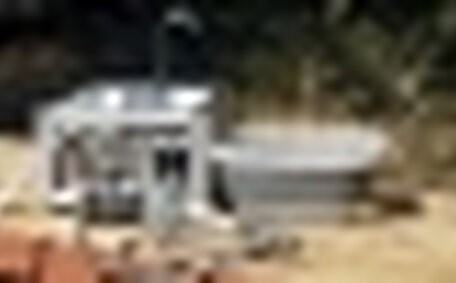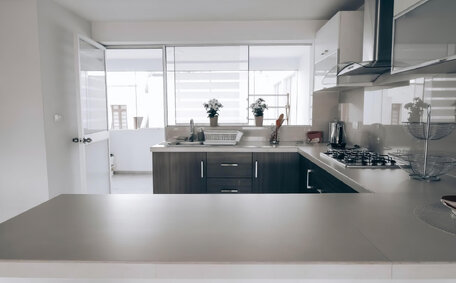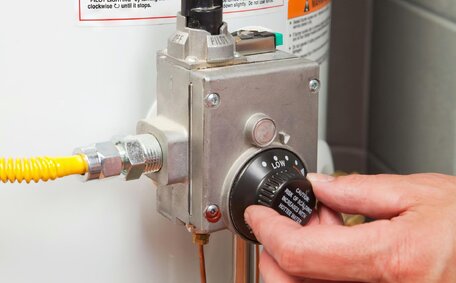Identifying Hazardous Household Products That Can Damage Pipes
Numerous household products can harm your pipes if not disposed of correctly. Identifying which waste can damage the plumbing system in your home is an important first step in its waste management and protection.
Common Pipe-Damaging Products
- Cleaners - Drain cleaners, oven cleaners, acidic toilet bowl cleaners, which must be rinsed and, if recyclable, triple rinsed
- Solvents - Paint thinners, varnishes, glues
- Automotive wastes like waste oil, antifreeze, brake fluids
- Batteries - Both single-use and rechargeable batteries
- Pesticides, herbicides, fertilisers from your garden spray tank
Always follow the product label instructions for safely disposing of hazardous substances, ensuring they’re not poured down the drain. Many of these common household chemicals can cause serious damage and thus should be treated with care to ensure they can taken to proper disposal facilities. Pay special attention to disposal method warnings to prevent hazardous materials from being allowed to drain into our ecosystems or contaminate your kerbside collection.
Batteries, for instance, are a hazardous item that should be disposed of through local recycling programs because they can ignite when crushed in waste collection trucks or landfills. Local recycling programmes offer the safest and most convenient avenues to dispose of waste such as used batteries.
Precautions When Discarding Harmful Products
- Avoid pouring chemical wastes into kerbside bins, drains, sinks, or toilets
- Check for local hazardous waste drop-off points or recycling programs
- Completely use up products or Consider reusing or passing on certain hazardous leftovers to those who can make use of them.
- Store chemicals in sealed, clearly labelled containers until ready for disposal.
The precautions you take when managing hazardous materials underscore a steadfast commitment to environmental health safety, effectively reducing contamination risks or plumbing disasters. Identify hazardous household chemicals and always dispose of them responsibly, ensuring that environment protection is upheld and any risks are kept out reach.
Proper Storage of Chemicals and Corrosive Substances
Proper storage handling techniques are crucial to prevent leaks or spills and safely dispose household chemicals that could damage pipes. Here are some key guidelines to prevent waste down drain through safe storage:
Use Original Containers
Preserve all chemicals in their original, labelled chemical containers as each container must be easily identifiable. Avoid transferring them into food or beverage containers. Check your containers regularly for wear, cracks or leaks.
Secure Lids and Caps
Your chemical containers should only have their caps and lids tightly sealed to avoid spills. Some chemicals must remain upright to prevent leaks.
Utilise Safety Equipment
Implement secondary containment measures, like spill trays, for chemical products prone to leakage. Always have spill kits and equipment to deal with fire explosion scenarios on hand to properly store hazardous materials. Use personal protective equipment, such as gloves, goggles, and masks, when handling chemicals.
Separate Incompatible Chemicals
Make sure you don’t eat drink smoke when storing chemicals that can react together. Read labels or Safety Data Sheets to identify incompatibilities.
Control Access
Secure laboratory waste and chemicals in locked storage cabinets, rooms, or sheds to prevent access by children or unauthorised individuals.
Meet Legal Requirements
Businesses must comply with hazardous waste regulations concerning storage and handling, including maximum stored volumes and signage.
Storing all chemicals safely is essential for health safety and reducing accidents. Always use caution and consult experts like licenced plumbers if you have questions.
Local Regulations and Guidelines for Safe Disposal
When it comes to properly disposing of hazardous your household chemicals and waste in the Riverwood area, it’s crucial to abide by local regulations and guidelines to safeguard both human health and our environment.
City of Canterbury Bankstown Council Guidelines
Residents of Riverwood wondering where can they find information on hazardous waste disposal should contact the City of Canterbury Bankstown Council. The council provides the following guidelines:
- Dangerous goods, classified as hazardous wastes, should never disposed of in a manner that is thoughtless. This can transmute hazardous chemicals into municipal solid waste materials that contaminate landfills and waterways.
- The council hosts periodic mobile household chemical cleanout events for safe disposal. Consult their website to ascertain there are no issues finding your nearest drop-off dates.
- The council’s Resource Recovery Centre in Bankstown accepts up to 20 litres of hazardous waste per item for free. Larger amounts incur a fee.
- Car and household batteries, along with fluorescent tubes and other waste, can be recycled for free at various local drop-off locations.
NSW EPA and WorkCover NSW
There are also New South Wales EPA regulations and WorkCover NSW codes of practise around proper storage, handling and disposal of hazardous materials that businesses must comply with or face penalties.
Key requirements include:
- Proper protective equipment, storage facilities, spill kits
- Trained staff, labelling, waste tracking systems ensuring the facility can handle hazardous waste efficiently
- Employing licenced hazardous waste management companies and facilities for your hazardous materials
Contact the NSW EPA or WorkCover for more information on regulations concerning the disposal of commercial hazardous waste via appropriate protocols.
Ensuring the safe, legal and environmentally responsible disposal of potentially pipe-damaging substances is key to upholding environmental health in line with practices recommended by Sustainability Victoria. Please check with your local Riverwood council for the latest guidelines.
Safe Disposal Methods for Hazardous Liquids and Residues
Disposing of hazardous household liquids and residues properly is critical to prevent contamination and damage. Here are safe methods:
Recycle and Reuse
Enquire with waste recycling programs to find out if hazardous wastes such as paints, pesticides, or motor oil are recyclable. Programmes like Paintback accept leftover paint. Give extras to someone who can use them up.
Neutralise and Dilute
Certain hazardous liquids may be disposed of via the sewer after dilution and pH neutralisation. Follow instructions when available. Use great caution.
Drop-Off Locations
Most councils offer household chemical cleanout days for safe disposal, with some sites accepting up to 100 litres per container.
Licenced Collection
When dealing with more than nominal volumes, employ licenced collectors to safely extricate hazardous waste from your premises using approved methods.
Never introduce hazardous waste via drains or dispose hazardous waste in general waste bins. Check with your local city council for the latest household hazardous waste disposal guidelines.
Recycling and Alternative Disposal Options
There are several more eco-friendly alternatives for disposing of hazardous household waste instead of pouring chemicals down the drain or throwing them in the trash.
Recycling Programmes
Check if your local council or community offers recycling for hazardous wastes like paint, motor oil, car batteries, or mobile phones. Recycling is the best way to safely dispose of these materials while diverting them from landfills.
Household Chemical CleanOut Days
Many councils, often in partnership with organisations like Planet Ark, periodically host free drop-off days for residents to properly dispose of leftover household chemicals, pesticides, automotive fluids, batteries, and more. This ensures the waste is managed safely, minimising risks to human health and the environment. Contact your council to find out when the next CleanOut day will be held.
Resource Recovery Centres
Some local transfer stations and waste facilities accept certain types hazardous waste like chemicals, asbestos, and liquid fuels. Often, you can drop off small amounts of hazardous materials (typically less than 20 litres) for free. Storage and handling requirements must still be followed.
Treating hazardous waste through re-use, recycling, or regulated disposal reduces accidents and contamination while protecting the environment. Check with your Riverwood council about local drop-off programmes and requirements for household hazardous products.
When to Call a Professional Plumber
Calling a professional plumber is crucial in certain situations where attempting DIY solutions could make problems worse or fail to completely resolve issues.
Chemical Leaks and Spills
In case of a hazardous chemical leak from storage that contacts pipes, immediately call a licensed plumber. Trying to fix chemical leaks without proper gear risks exposure or further spreading.
Blocked Drains from Improper Disposal
Regularly flushing hazardous liquids or disposing of chemicals in drains can lead to pipe corrosion, serious blockages, and pollution. A pro can attempt to clear the pipes safely and evaluate system damage.
When Unsure About Proper Methods
Should you ever be uncertain about identifying pipe-damaging products, safely storing chemicals, correctly disposing hazardous wastes, or managing leaks and contamination adeptly, do reach out to Riverwood Plumbing. Our skilled technicians can provide critical help while preventing human and environmental harm.
Contact Riverwood Plumbing at 1300 349 338 or [email protected] for emergency plumbing needs related to hazardous materials or for professional advice on maintaining your pipes.
Emergency Procedures for Chemical Spills
Chemical spills can create extremely hazardous situations that require an immediate, careful response. Here are important guidelines if you experience a chemical spill:
Evacuate the Area
Your personal safety should be the top priority. Evacuate everyone not equipped to provide emergency response from the spill area. Try to provide ventilation by opening doors and windows.
Call Emergency Services
For large spills or if anyone experiences chemical burns or breathing difficulties, don personal protective equipment and call 000 immediately for expert medical and hazmat assistance. Otherwise, contact services licenced for scenarios where hazardous waste can spill.
Put On Protective Equipment
Before attempting to stop or contain the spill, put on impermeable gloves, protective clothing, goggles and an appropriate respiratory mask if available in a spill kit.
Stop the Source of the Spill
If it’s safe to do so, try to stop additional chemical from spilling out of containers. This might involve plugging holes, closing valves, setting containers upright or activating spill response protocols to move them away from drains.
Contain the Spill
For small spills, use spill kits or loose absorbents like sand or kitty litter to clean up and contain liquid spills from spreading further. Place absorbents around the spill’s outer edges first. Avoid exposure or allowing hazardous liquids like acids or solvents to reach sinks and drains.
Contact Professionals
Improper chemical spill clean-up can endanger clean water sources, putting waste into waterways, exacerbating risks to human health and the environment by worsening contamination and pipe damage. Contact skilled services like Riverwood Plumbing on 1300 349 338 for professional containment and spill mitigation services.
Chemical spills jeopardise health and property if not addressed properly. Always focus on safety and expert remediation.






